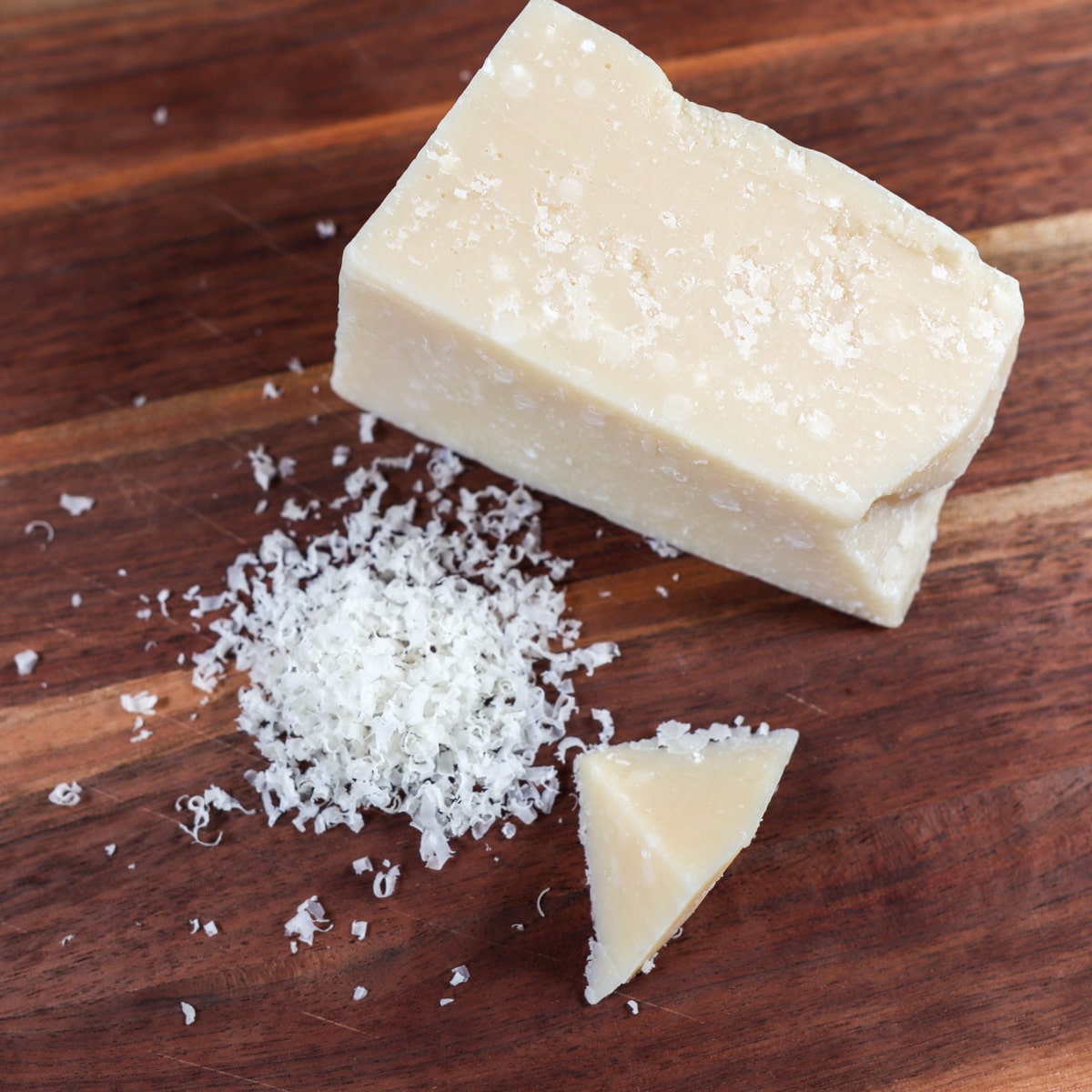Does Parmesan Cheese Go Bad?
Parmesan cheese is a delicious Italian cheese that comes in many different grades and forms. You will notice when you buy parmesan cheese that it has a best-by date on it and not an expiration date.
So you might be wondering whether parmesan cheese goes bad if there is no expiration date. The simple answer is yes, parmesan cheese does go bad eventually.
Knowing when and how to tell if it has gone bad is what I will be going over here.

Does parmesan cheese go bad?
Yes, just like any other cheese, Parmesan can go bad, but it is a hard cheese and therefore typically has a longer shelf life compared to softer cheeses.
Proper storage is key to extending its freshness. However, even if it does get a bit hard or dry, the flavor remains, and it can often still be grated and used.
How to know if parmesan cheese has gone bad
When you are buying parmesan cheese you want to make sure that you look at the “pack-on” date or the “best by” date. The fresher the cheese when you buy it, the longer it will last you.
Color
Once you notice that it is drying out and turning a grey or yellowish color it has gone bad and you should discard the container or block of parmesan. Another obvious sign of parmesan that is bad is green mold.
Mold
If you have a block of parmesan with a small spot or two of mold on it, it is ok to cut that part off and be safe to eat the rest.
Smell
If you smell a sour or rancid smell that is also a good indicator that it is no longer good. Parmesan cheese has a pretty strong smell when it is fresh but it shouldn’t smell moldy.
Taste
The same goes for the taste. You do not want to eat parmesan that tastes sour or moldy. It’s not worth the risk and like most cheeses that have gone bad, you should dispose of it.
If you grate your cheese and you don’t have one learn how to grate cheese without a grater.
Grated parmesan cheese
Some find it more convenient to buy parmesan already grated. It has its pros and cons.
The pros to buying parmesan already grated are that you can grab it and it’s ready to use in your sauce, on your pizza, or whatever to like to add it to.
The con to buying grated parmesan is that it doesn’t last as long and it doesn’t taste as fresh as when it is freshly grated from a block.
If you are buying grated parmesan cheese you will see that they have put a best-by date on the bag or container.
Best-by or used-by dates are a recommendation but you can usually use them a week or so after the date on the container be sure to look at it well and smell it to make sure it is ok.
As long as you store it in the refrigerator it will last you upwards of a month.
Block of Parmesan cheese
Personally, I like to buy parmesan in a block. It tends to be fresher, and I love its taste when I freshly grate it right onto my food.
There are a couple of kinds of cheese graters that are great to use. All you have to do is cut off a small chunk and then grate however much you need for your dish.
You can also leave some on the table for people to grate onto their dishes.
Parmesan cheese bought in a block tends to last you a while. Because it is a dehydrated cheese, it doesn’t have a lot of moisture to attract mold to grow on it and because of that, it can last longer.
You want to be sure to wrap it in saran wrap or foil tightly to keep the moisture off it.
You might notice that it only has a “packed on a date” on it. This is so that you know when it was cut from the wheel and wrapped.
It will last up to 6 weeks stored properly in the fridge and about 4 months unopened.
Check out my post about how to tell if mozzarella is gone bad also.
How long does parmesan cheese last?
An unopened block of Parmesan cheese can last up to several months in the refrigerator. Once opened, if stored correctly, it can last 4-6 weeks.
However, this can vary based on factors such as the specific product and storage conditions. Grated Parmesan cheese, whether it’s fresh or pre-packaged, tends to have a shorter lifespan – about 1 to 2 weeks.
How to store parmesan cheese
Storing Parmesan cheese correctly is vital for maintaining its quality. An unopened block can be kept in the refrigerator.
Once opened, wrap it in wax paper, which allows it to breathe while maintaining the right moisture balance, and then put it into a sealable plastic bag or airtight container.
Always store it in the coldest part of your fridge, typically the bottom drawer.
Can you freeze parmesan cheese?
Yes, you can freeze Parmesan cheese! It’s best to grate it first, then store it in an airtight container or a freezer bag.
Just be aware that while freezing extends the cheese’s life, it may slightly alter its texture, making it a bit crumbly once thawed. It’s still perfect for melting or sprinkling over dishes.
Frequently asked questions about if parmesan cheese goes bad
Conclusion
There you have it – your ultimate guide to handling Parmesan cheese. With the right care and storage, you can keep your Parmesan cheese fresh and tasty for as long as possible.
Remember, good food starts with great ingredients, and knowing how to store them properly is half the battle. Keep cooking, keep experimenting, and above all, keep enjoying the wonderful world of food!

Online Cooking for Beginners Course